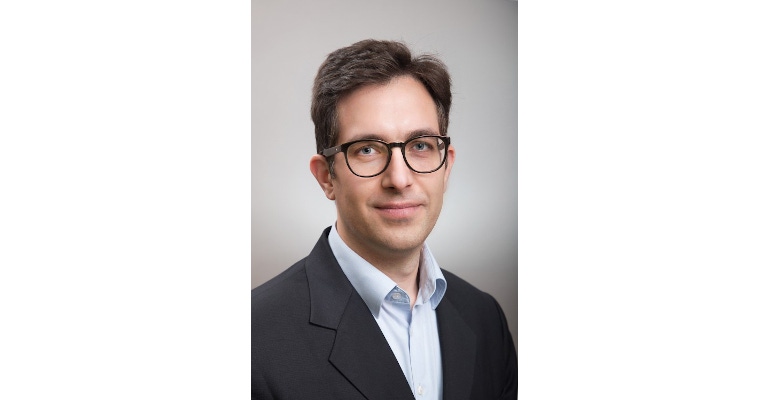Perfecting the Future of Data-Driven Healthcare
Patrick Bangert, VP of AI at Samsung SDSA, explored the 3 magic words for healthcare—artificial intelligence, big data, and edge computing—in a BIOMEDevice Silicon Valley keynote.
November 30, 2021

Adrienne Zepeda, Group Event Director, BIOMEDevice Silicon Valley
Correction: This article has been updated to mention the other panelists who participated in the BIOMEDevice Silicon Valley keynote panel discussion, which has already been held.
Data-driven patient care is undoubtedly the future of the healthcare field. Automation opens the door to improved efficiencies, more personalized care, and improved profitability, but in healthcare, the implementation and advancement of these technologies are not without challenges unique to medicine.
Healthcare data is not only highly variable and complex but is extremely sensitive. Given the regulated nature of healthcare data and patient information, mistakes can compromise HIPAA compliance, and even more severe, mismanaged data can potentially result in life or death results.
However, the promise of these technologies is enormous. A few years ago, John Hopkins conducted a study establishing medical error as the third-leading cause of death in the United States. The maturation of AI and ML tools will help doctors identify complications before their life or death and ultimately improve patient outcomes.
Patrick Bangert, VP of AI at Samsung SDSA, addressed the key risks and opportunities that automation technologies pose in the healthcare space in a keynote panel at the BIOMEDevice Silicon Valley Smart Event, titled “The Three Magic Words for Healthcare - Artificial Intelligence, Big Data & Edge Computing.” Also on the panel were Nandha Kumar Balasubramaniam, Head of Digitalomics Strategy, Oracle Health Global Business Unit, Oracle Corp.; Zakia Rahman, MD, FAAD, Clinical Professor of Dermatology, Stanford University; and Srihari Yamanoor, President, DesignAbly. The premiere exhibition, which took place December 8 and 9 at the San Jose McEnery Convention Center, connected biotech and medtech engineers and cutting-edge companies and provided world-class education both in-person and online.
I had the distinct pleasure of sitting down with Patrick ahead of the event to discuss the keynote panel.
AI and ML capabilities are driving the smarter delivery of more efficient and precise products. What notable trends are emerging as a result of integrating AI/ML capabilities with healthcare?
Bangert: Automation is the primary benefit of AI in any industry. AI frees up doctors and other healthcare professionals to focus on the patient where momentarily they are spending 75% of their time analyzing data and doing paperwork. Patients have to wait 4-6 weeks, unaware of the results of a biopsy. If those are available instantly, the treatment can begin sooner, leading to better outcomes. The most significant benefit will be felt in those regions that don’t have A-rated facilities. On average, 30% of human diagnoses are mistaken, while AI can be accurate to over 99%. AI can democratize healthcare worldwide.
Ongoing technological advances open the door for medical breakthroughs but also incite new obstacles. Could you speak to these challenges?
Bangert: Regulation is a major obstacle, particularly because the regulation is different in every country. Trust is a worldwide obstacle to AI adoption in many areas, and we have much work ahead to have the population at large trust an automated system with their health. For the technology sector, the main obstacle, however, is quality data. The data must be acquired and annotated by human experts, which is the main cost of AI. We at Samsung SDS are reducing this work by 90% with AI automation.
How do you see today’s data-driven approach to research and device development impacting healthcare delivery in the future?
Bangert: This will speed up the industry by leaps and bounds and reduce research costs significantly. We can expect to see progress at a faster pace and also updates in hospitals faster than before.
You are speaking on a keynote panel with three peers at BIOMEDevice Silicon Valley. What can attendees look forward to learning?
Bangert: A key frontier for AI is medical devices. The frontier for medical devices is AI. The industry has been improving medical devices little by little over many years. There is little breakthrough or game-changing innovation. AI offers a bold new vision where the medical device is the first step as a sensor to the world, but it is the analysis of the acquired data that presents the value – both to the industry as well as the patient.
What excites you most about engaging with your community in person this December?
Bangert: Meeting them in person, learning about new developments, and sharing ideas about how AI can help drive innovation and make devices as well as outcomes better.
Secure a pass here to tune into the keynote pane and engage with more than 200 suppliers advancing the integration of advanced technologies in healthcare. Access the online platform that is open today and begin earning points for the chance to win cash and high-tech prizes. The more education you tune into, the more points you earn!
You May Also Like


